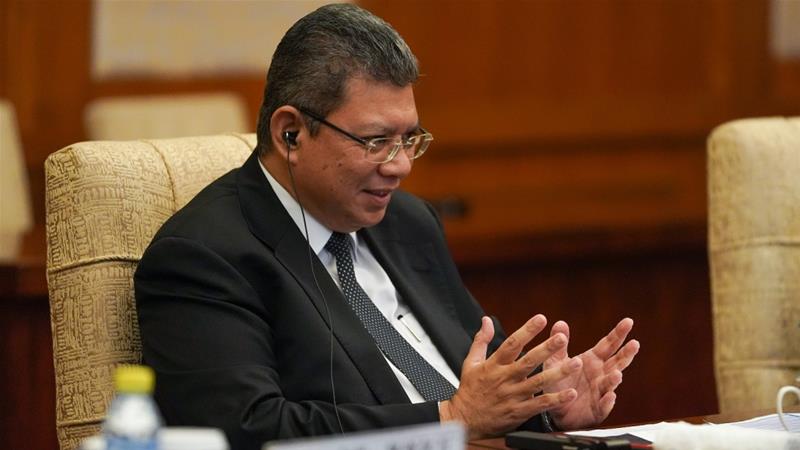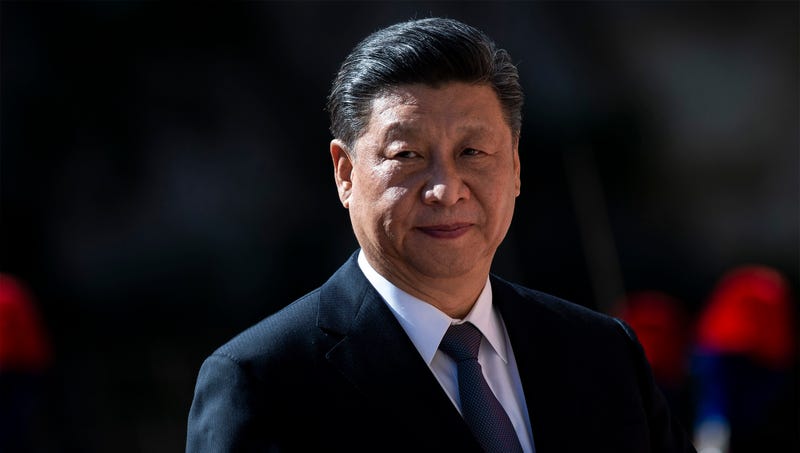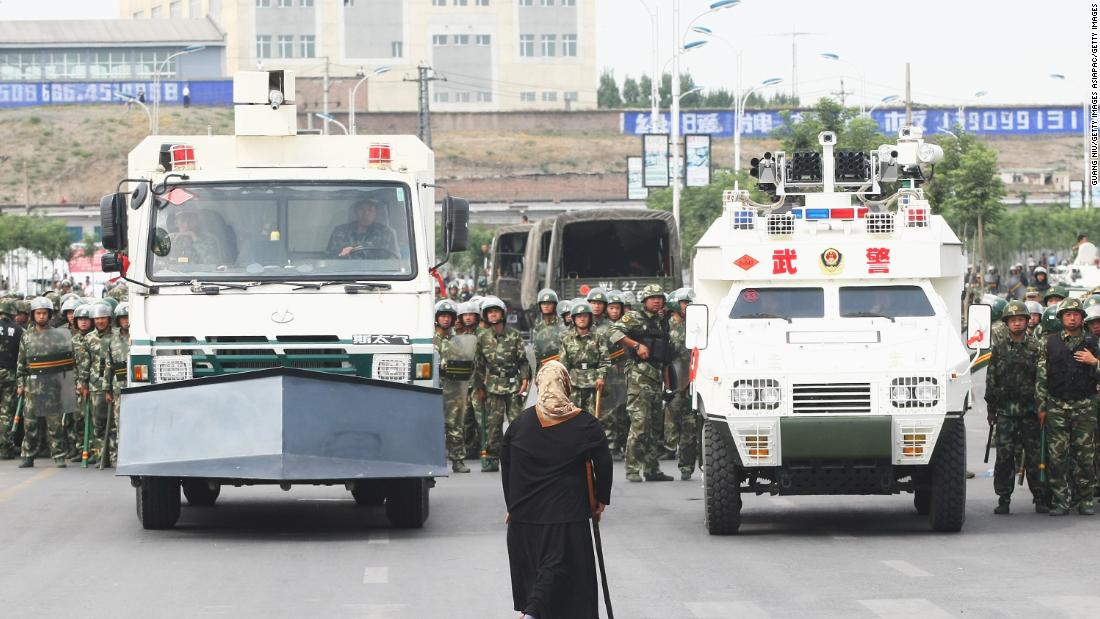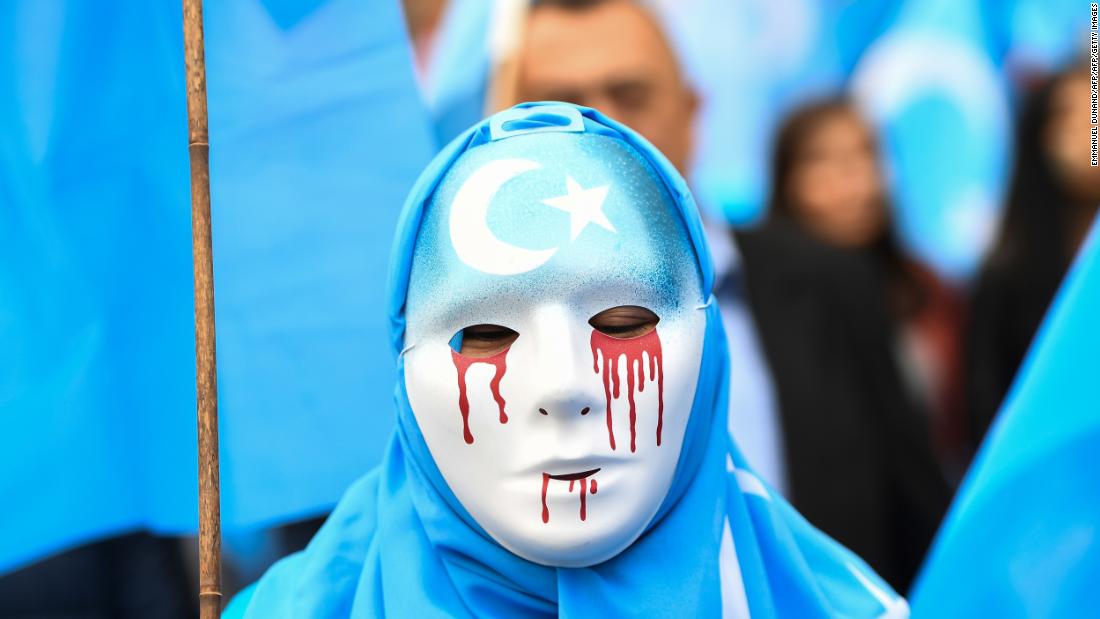Instead, he announced that the deals were off for now.
“It’s all about borrowing too much money, which we cannot afford and cannot repay because
,” Mr. Mahathir said.
Prime Minister Mahathir Mohamad has been given an electoral mandate to guide Malaysia out from under $250 billion in debt, some of it owed to Chinese companies.

A rooftop bar at Melaka Gateway.
A
Pentagon report released last week said “
The ‘Belt and Road Initiative’ (BRI) is intended to develop strong economic ties with other countries, shape their interests to align with China’s and deter confrontation or criticism of China’s approach to sensitive issues.”
“
Countries participating in BRI could develop economic dependence on Chinese capital, which China could leverage to achieve its interests,” the report said.
Malaysia’s new finance minister,
Lim Guan Eng, raised the example of Sri Lanka, where a deepwater port built by a Chinese state-owned company failed to attract much business.
The indebted South Asian island nation was compelled to hand over to China a 99-year lease on the port and more land near it, giving Beijing an outpost near one of its busiest shipping lanes.
“We don’t want a situation like Sri Lanka where they couldn’t pay and the Chinese ended up taking over the project,” Mr. Lim said.
In a recent interview with
The New York Times, Mr. Mahathir made clear what he thought of China’s strategy.
“They know that when they lend big sums of money to a poor country, in the end they may have to take the project for themselves,” he said.
“China knows very well that it had to deal with unequal treaties in the past imposed upon China by Western powers,” Mr. Mahathir added, referring to the concessions China had to give after its defeat in the opium wars.
“So China should be sympathetic toward us. They know we cannot afford this.”
Strategic Location

The Malaysia-China Kuantan Industrial Park.
Malaysia has long served as a prize of empire, with a geopolitical importance that belies its relatively small size.
The Portuguese, Dutch and British flocked here, eager to control a fulcrum linking the Pacific and Indian Oceans.
China is the latest power to try to share in the riches.
Kuantan, a Malaysian city nestled on the South China Sea coast, had never been a hot spot.
But then China began adding military heft to its territorial aspirations in the sea, where five other governments, Malaysia’s included, have competing claims.
Chinese financing began washing over Kuantan five years ago.
Guangxi Beibu Gulf International Port Group, a state-owned firm from an obscure Chinese autonomous region, won a contract supported by the Malaysian government to build a deepwater terminal and industrial park.
Nearby was a planned stop on the East Coast Rail Link that would mostly be financed by the Export-Import Bank of China, a government institution.
Presiding over the official launch for the Malaysia-China Kuantan Industrial Park in 2013, Mr. Najib conferred on the project a global import.
“China and Malaysia remain closely connected at a time when the balance of global trade is tilting in Asia’s direction,” he said.
“On economic cooperation — and diplomatic — I am proud to say that Malaysia is ahead of the curve.”
Kuantan residents, though, have long worried that the city could be saddled with white-elephant projects.
“We welcome foreign investment and development, but we question the huge price that we will have to pay,” said Fuziah Salleh, a Kuantan lawmaker for Malaysia’s new governing coalition.
“Who is the real beneficiary of all this financing? The Malaysians or the Chinese?”
“I am worried that our sovereignty has been sold,” Ms. Fuziah said.
Mr. Mahathir, however, is not averse to standing up to the superpower of the day.
He was prime minister before, from 1981 to 2003, and back then he railed against the United States and other Western countries for what he said was a plot to hold back developing nations like Malaysia.
“Mahathir thinks China is a hegemonic force that can control economies like Malaysia,” said Edmund Terence Gomez, a political economist at the University of Malaya.
“He’s always been worried about powerful forces. Before it was the U.S., now it’s China.”
Mr. Mahathir’s administration has been in power for little more than 100 days.
In that time, Malaysian officials say, they have discovered that
billions of dollars in inflated Chinese contracts were used to relieve debts associated with a Malaysian state investment fund at the heart of a graft scandal that led to Mr. Najib’s downfall.

Former Prime Minister Najib Razak arriving at court in Kuala Lumpur last month after his arrest on corruption charges.

The construction site of a deepwater port in Kuantan.
The United States Treasury Department has accused Mr. Najib and his family and friends of plundering billions of dollars from that fund, 1Malaysia Development Berhad, or 1MDB.
When the indebted fund began a fire sale of assets, two Chinese state-owned giants, the China General Nuclear Power Corporation and the China Railway Engineering Corporation, moved in, prompting speculation that Beijing was happy to keep Mr. Najib’s cash-strapped government afloat.
Sitting at his desk during an interview after the election, Mr. Mahathir pointed to a sheaf of papers before him.
It was a proposal from a Malaysian construction company that he said contained evidence that the East Coast Rail Link could have been developed by a Malaysian company for less than half of the $13.4 billion contract won by the China Communications Construction Company, a state-owned Chinese firm with extensive operations overseas.
Notably, the bidding process for the rail contract was closed.
Last week, Mr. Lim, the finance minister, told Parliament that Malaysia would not be able to cover the operational cost for the railway, much less the capital expenditure, which he estimated at nearly $20 billion rather than $13.4 billion.
Neither the Chinese company nor its Malaysian partner responded to requests for comment.
“It looks like not all the money is being used for building the railway line,” Mr. Mahathir said of the East Coast Rail Link deal.
“The likelihood is the money has been stolen.”
Malaysian investigators are looking into whether
an associate of Mr. Najib’s stepson may have brokered the rail deal to alleviate the debt accrued by 1MDB or to fund Mr. Najib’s re-election campaign.
The United States Treasury Department considers that associate,
Jho Low, an exiled financier who has an arrest warrant out on him, to be the prime agent in the 1MDB scandal.
On the eve of Mr. Mahathir’s trip to China, Malaysian finance ministry officials said they believed that Low had been hiding out in China.
Malaysia’s new administration, which unseated a coalition that had ruled, in one form or another, since independence in 1957, has also been scrutinizing the $2.5 billion deal for a subsidiary of the China National Petroleum Corporation to build energy pipelines in Malaysia.
Mr. Lim said he had discovered upon taking up his post that the Malaysian government had already disbursed more than $2 billion for the project.
There was one catch.
“From what we understand,” Mr. Lim said, “zero percent of the construction work has been carried out.”
Building Big Ports

Melaka Gateway includes three artificial islands and an expanded natural islet.
While the role of Chinese money in bailing out Mr. Najib’s indebted administration has received the most attention, another Chinese megaproject raises even sharper questions about Beijing’s geopolitical aims.
The Malaysian city of Malacca was once a conduit for spices and treasures that flowed from Asia to Europe.
The strait named after the city is still the channel through which much of Asia’s seaborne trade — and most of China’s oil imports — flows.
But Malacca’s port silted up centuries ago and is now a backwater.
Instead, nearby Singapore, which sits at the southern end of the Strait of Malacca, ranks as the world’s busiest transshipment hub.
A $10 billion development project — backed by PowerChina International, a major Chinese utility, and two Chinese port developers — is supposed to propel Malacca back into global significance, as a vital stop on a maritime trade route that stretches from Shanghai to Rotterdam.
The plan for this project, Melaka Gateway, includes three artificial islands and an expanded natural islet, which will hold an industrial park, cruise terminal, theme park, marina, offshore financial hub and self-styled seven-star hotel.
And there will be a new deepwater port, with berths large enough to host an aircraft carrier.
The port operator was given a 99-year lease for the deepwater terminal, rather than the more common 30-year time frame.
The local partner in Melaka Gateway is KAJ Development, which counts among its previous accomplishments building the local zoo and bird park.

Chinese tourists posing in front of an “I Love Melaka” sign in Malacca.

A road worker sweeping near the entrance to Melaka Gateway.
To explain how a little-known company was able to work with Chinese firms to transform such a strategic spot, locals have remarked on the close ties between the head of KAJ Development and Mr. Najib’s party machine.
The company did not respond to a request for comment.
“We have so many questions about the project but no answers,” said Sim Tong Him, a former lawmaker from Malacca.
“How did KAJ get the contract? What might happen if the Malaysian side can’t pay up? The Chinese are so secretive about this. It leaves us with a very bad feeling.”
Malacca State’s new chief minister has promised an investigation into the feasibility of the entire project, including the possibility that land on one island could be sold as a freehold to a Chinese state-owned company.
Melaka Gateway’s necessity, at least for locals, has never been clear.
After all, the nearby Singaporean port is unlikely to be eclipsed.
And Malaysia is already expanding other ports, even as many are running under capacity.
“We are very concerned because in the first place we don’t need any extra harbor,” Mr. Mahathir said of the Malacca project.
“We don’t have to depend upon foreigners to come,” he added.
“When they build, they use foreign labor, foreign materials. What do we get? Nothing.”
But Beijing has funded the building of ports across the Indian Ocean, a strategy known as the string of pearls.
Military experts have said that these ports could one day welcome Chinese warships and submarines.
“You look at a map and you can see the places where China is plotting ports and investments, from Myanmar to Pakistan to Sri Lanka, on toward Djibouti,” said Liew Chin Tong, Malaysia’s deputy defense minister.
“What’s crucial to all that? Our little Malaysia, and the Malacca Strait.”
Under Mr. Najib, Malaysia conducted joint military drills with China and allowed Chinese attack submarines to make a port call.
Mr. Mahathir has shifted course.
“I say publicly that we do not want to see warships in the Strait of Malacca or the South China Sea,” he said.
City of Dreams

A showroom model of Forest City, a China-financed real estate project in Johor Bahru, Malaysia.
In
Forest City, a new metropolis being built at the tail end of the Malaysian peninsula, a tour guide gazed up at a bank of screens showcasing the latest in Chinese facial-recognition technology, and gave his best pitch to a group of would-be investors from a coal town in northern China.
Forest City, he said in Mandarin, was a jewel on the South China Sea.
Best of all, he said,
everything in the city was designed for a Chinese clientele, from the layout of the luxury apartments to the signage in Mandarin.
The development — four artificial islands covering around eight square miles, or enough space for around 700,000 people — was conceived of by Country Garden, one of the largest private Chinese property developers, in cooperation with an investment entity whose largest shareholder is the local sultan.
In the sales gallery, an electronic display plays up Forest City’s “strategic location” and places it at the center of a map of Beijing’s Belt and Road Initiative projects.
“We are doing something that will alter the world map,” the sales pitch reads.

Forest City showroom employees putting on a show in Chinese for the children of prospective buyers.
 Ceramic sea lions on the beach at Forest City.
Ceramic sea lions on the beach at Forest City.
More than any other project,
Forest City helped turn local sentiment against Chinese cash, amid suspicions that
a private Chinese property developer was somehow plotting to reshape Malaysia’s delicate ethnic balance.
“
This is not Chinese investment but a settlement,” Mr. Mahathir said during the election campaign, using Forest City as a frequent punching bag.
Forest City is not a strategic play by the Chinese People’s Liberation Army to station warships in Malaysia.
Nor is it viewed as a way for Beijing to finance the excesses of a corrupt leader.
Instead, it represents something even more alarming to the average Malaysian — four man-made islands on which Chinese can live as they like and, in the process, dilute the Malaysian national identity.
Although the majority of Malaysians are Malay Muslims, the country’s second largest ethnic group is Chinese, followed by an Indian population.
Many Chinese migrated to Malaysia during the colonial era, and the feeling that they were given preferential treatment by the British lingers to this day.
Affirmative action programs that gained full force during Mr. Mahathir’s first stint as prime minister ensure that Malays and indigenous populations get a leg up over ethnic Chinese Malaysians.
In that context, the prospect of a new wave of Chinese migration, even if only a population of part-time sunbirds, is politically sensitive in Malaysia.
But what if that wave doesn’t even materialize?
Capital controls in China have made it far more difficult for Chinese to get their money out to pay for overseas real estate, worrying the Mandarin-speaking sales staff at Forest City.
Who will buy all these condominiums, which are priced far above the local property market, if not the Chinese?
“We all want Forest City to succeed, because we cannot afford for it to fail and become an empty ghost city,” said Wong Shu Qi, a member of parliament for the Democratic Action Party, which is part of the governing coalition.
“The reality is that wishing for a Chinese concession in Malaysia is the best thing we can hope for,” she added.
“How sad is that?”

A residential tower project under construction at Forest City.
 Malaysian Foreign Minister Saifuddin Abdullah said he expects ASEAN to further debate in the coming months the need for a 'Code of Conduct' with China over the South China Sea issue
Malaysian Foreign Minister Saifuddin Abdullah said he expects ASEAN to further debate in the coming months the need for a 'Code of Conduct' with China over the South China Sea issue 
 Banco Delta Asia remains under U.S. sanctions for helping North Korean money laundering activities.
Banco Delta Asia remains under U.S. sanctions for helping North Korean money laundering activities. 
























 Ceramic sea lions on the beach at Forest City.
Ceramic sea lions on the beach at Forest City.